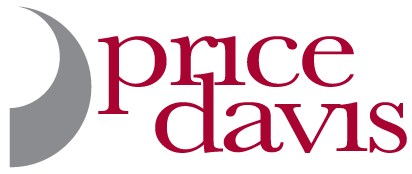When it comes to your personal finances, we know every penny counts.
Depending on your circumstances there are certain planning activities you can do to take advantage of various tax reliefs and reduce your tax liability.
Early tax planning activities can ensure you are making the most of your finances throughout the year, and to generally gain a better understanding of what your tax liability will be in advance; allowing you to take action accordingly.
Below are some additional considerations to make when it comes to your personal tax planning, and all tips relate to the 2020/2021 tax year.
Top Tips for Reducing your Income Tax Rate
As I’m sure everyone is aware, there are currently 3 bands of income tax in use in the UK.
The basic rate of tax of 20% (7.5% for dividends) is levied on income between the personal allowance of £12,500 and £50,000, the higher rate of tax at 40% (32.5% for dividends) is levied on income between £50,000 and £150,000; and the additional tax rate of 45% (38.1% for dividends) on earnings over £150,000.
However, if your ‘adjusted net income’ is above £100,000 your personal allowance is reduced by £1 for every £2 your income is above £100,000, meaning if you earn above £125,000 you will lose your entire personal allowance.
Below are some considerations to keep in mind to help you reduce your rate of income tax:
- Consider sharing ownership of income producing assets such as rental properties with your spouse, especially if your spouse pays no income tax, or tax at lower rates.
- Similarly, you could also share ownership of income producing assets with your children (over 18 years old). However, transferring certain assets may create a CGT liability so careful planning is required.
- Pension contributions can increase your basic rate band so discuss with your pensions advisor about what level of contribution you could make for the period. You may be able to utilise any unused pension annual allowance brought forward from the previous three years.
- If you make any pension drawdowns this may be considered taxable income which may incur additional tax so this needs to be taken into account before making any withdrawals.
- Donate to charity. Gift aid donations increase your basic rate tax band and are an effective strategy for reducing your tax liability. Charitable donations are also one of the few remaining reliefs that you can carry back, in certain circumstances, to the previous tax year.
- If your spouse’s income is below the personal allowance and you are a basic rate tax payer you can take advantage of ‘marriage allowance’ allowing your spouse to transfer £1,250 of their personal allowance to you, saving you up to £250 in tax.
- Interest earned on an ISA is tax free and you can invest up to £20,000 into an ISA throughout the tax year. So if you have a high level of savings it may be worth considering moving cash from regular saving accounts to ISAs.
- There are a number of specialist investments you can make that qualify for income Tax Relief at different rates. They include: the Enterprise Investment Scheme, Seed Enterprise Investment Schemes, Venture Capital Trusts, and investments in certain Social Enterprises. The Income tax relief claimable varies between 30% and 50% of the qualifying investments, depending on the type of investment made. However, you will need to consider the commercial risks involved, as well as the tax advantages available.
- Don’t forget that the State Pension is treated as taxable income but is paid without any tax deducted. If your total income (including your State Pension) exceeds £12,500, this may put you in a taxable position.
Final Thoughts
When it comes to managing your finances & looking at ways to reduce your overall tax liability, there are many ways in which you can do so, whether by sharing some of your assets with your family, or donating to charity; there is no universal ‘right or wrong’ way of going about it. At Price Davis, we are experienced in giving our clients pro-active, relevant advice, based on their unique circumstances.
You can find more information on our personal tax services here, or get in touch with our team by calling us on 01452 812491 or by sending an email to info@pricedavis.co.uk.

